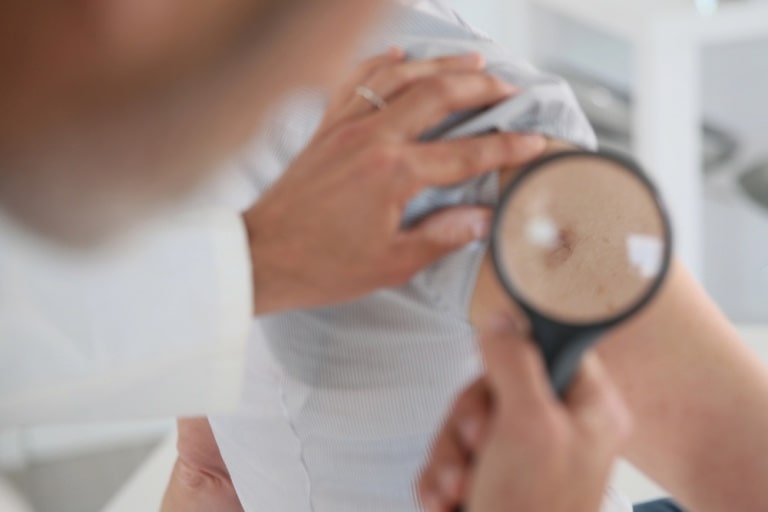Effective Strategies for Accelerating Skin Healing and Recovery

When it comes to skin healing and recovery, many of us could use a little help. Whether you’re dealing with a cut, scrape, or post-surgical wound, knowing the best ways to accelerate skin healing can make a significant difference in your overall well-being and confidence.
This blog post will explore several effective strategies for speeding up skin healing. From natural remedies to advanced therapies, we’ll cover it all to help you get back to looking and feeling your best.
Why Skin Healing Matters?
Skin is the largest organ in our body and acts as a protective barrier against environmental hazards. When it’s damaged, the healing process is crucial not just for restoring appearance but also for keeping infections at bay. Fast and efficient skin recovery can help you maintain your quality of life and well-being.
The Body’s Natural Healing Process
Understanding how your skin naturally heals can offer insights into how to speed up the process. The body goes through several stages when repairing damaged skin:
Hemostasis: The blood clots to stop bleeding.
Inflammation: The area becomes swollen as white blood cells rush to fend off infection.
Proliferation: New tissue starts to form over the wound.
Maturation: The new tissue strengthens and returns to its normal state.
Balanced Diet for Better Healing
What you eat can dramatically affect how quickly your skin heals. Consuming a balanced diet rich in vitamins and minerals supplies your body with the building blocks necessary for skin repair. Here are some particularly beneficial nutrients:
Vitamin C: Essential for collagen synthesis, which helps in forming new tissue.
Zinc: Vital for cell proliferation and immune function.
Protein: Provides the amino acids required for tissue regeneration.
Hydration is Key
Staying hydrated by drinking plenty of water helps maintain skin elasticity and promotes healing. Water assists in flushing out toxins, which can facilitate faster recovery. Dehydrated skin tends to heal slower, making hydration a critical factor in skin repair.
Proper Wound Care
One of the simplest and most effective ways to accelerate skin healing is to practice proper wound care. This includes cleaning the wound thoroughly, applying an antibiotic ointment, and covering it with a sterile bandage. Keeping the wound clean prevents infections and promotes faster healing.
Natural Remedies
Many natural remedies can aid in skin recovery. Some popular choices include:
Aloe Vera: Known for its soothing properties, aloe vera can reduce inflammation and promote faster healing.
Honey: Its antibacterial properties can help prevent infection and speed up the healing process.
Essential Oils: Oils like lavender and tea tree have antimicrobial properties that can aid skin repair.
Red Light Therapy
Among the advanced therapies available, red light therapy has shown considerable promise. This treatment involves exposing the skin to low levels of red or near-infrared light, which can penetrate the tissue to stimulate cellular function. Studies suggest that red light therapy can speed up the healing process by boosting collagen production, reducing inflammation, and improving circulation.
The Role of Exercise
Regular exercise can enhance your body’s ability to heal itself by improving circulation and delivering essential nutrients more efficiently. However, it’s important to avoid strenuous activities that could exacerbate injury, especially in the early stages of healing.
Rest and Recovery
Giving your body ample time to rest is another crucial aspect of speeding up skin recovery. Sleep and rest are essential for optimal immune function and cellular repair. Aim for 7-9 hours of sleep per night to give your body the best chance to heal.
Avoiding Harmful Habits
Certain habits can hinder the healing process, such as smoking and excessive alcohol consumption. Both can impair blood circulation and weaken the immune system, making it harder for your skin to recover.
Stress Management
Stress can hurt your body’s ability to heal. Practices like meditation, yoga, and deep-breathing exercises can help manage stress levels, thereby promoting faster skin recovery.
Over-the-Counter Treatments
There are various over-the-counter treatments available that can help accelerate skin healing. These might include specialized creams and ointments that contain ingredients like hyaluronic acid or hydrocortisone to reduce inflammation and promote tissue regeneration.
Consulting a Professional
While most minor cuts and scrapes can be managed at home, there are times when professional medical advice is warranted. If a wound shows signs of infection or does not seem to be healing, it’s best to consult a healthcare provider for specialized treatment options.
Conclusion
Accelerating skin healing and recovery is a multifaceted approach that involves proper nutrition, hydration, wound care, and advanced therapies. By incorporating these strategies into your routine, you can significantly improve your skin’s ability to repair itself. Remember, your skin is your body’s first line of defense, so taking good care of it is essential for overall health and well-being.





